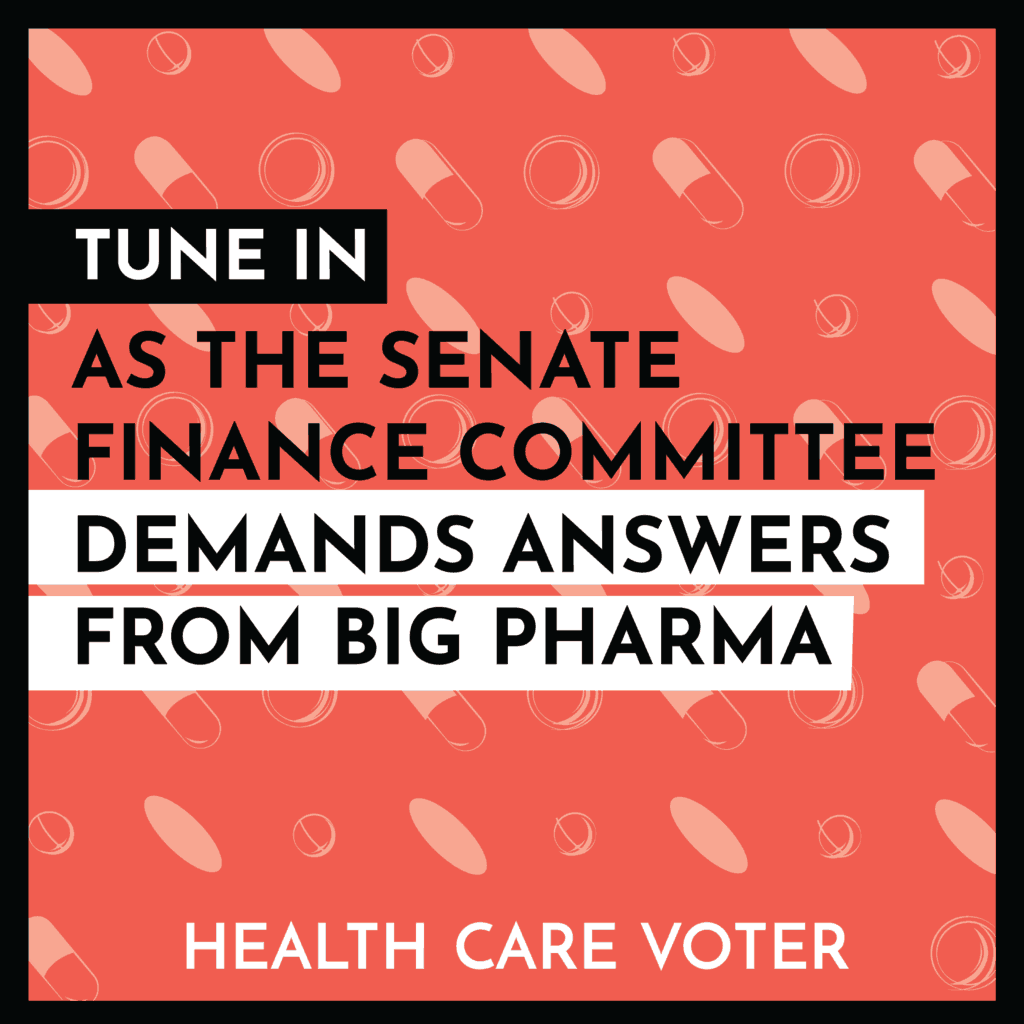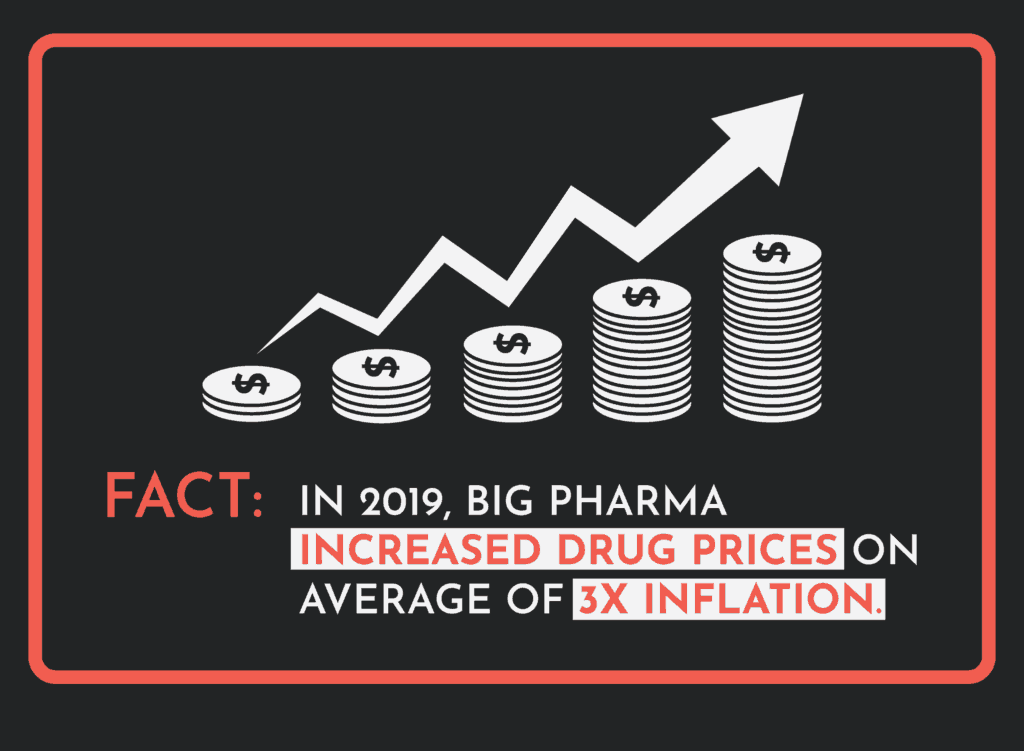
Rebecca Hovde from Wellman, Iowa, has taken medicine to treat her rare autoimmune disease for years. Recently, she learned the drug her life depends on will now cost her $375,000 a year - three times the value of her house.
After Catalyst Pharmaceuticals patented the drug Rebecca takes, they were granted market exclusivity for it in the United States. That means they could charge any price they wanted for the drug, and can also prevent others from selling it, or even giving it away.
Now, Rebecca isn’t sure she can afford it. “If I can’t get my medication, I won’t be able to breathe, and I’ll wind up being hospitalized,” she told the Des Moines Register.
Stories like Rebecca’s are all too common in the United States today. A recent poll found 80 percent of Americans believe the cost of prescriptions drugs is “unreasonable,” and Americans pay up to six times more for prescription drugs than patients in other developed countries. But why are prescription drugs so inaccessible and expensive in the United States?
That question is at the heart of a new Roosevelt Institute study, which examines how the pharmaceutical industry’s inflated costs yet poor health outcomes are connected to the economic rules and laws that structure it.
Year after year, the pharmaceutical industry earns record profits, and top CEOs earn tens of millions of dollars. Yet all across the country, Americans are dying because they can’t afford the medicines they need to stay alive.
The stark contrast between this corporate success and public health failure isn’t an accident: it’s by design. Our policymakers have essentially written the pharmaceutical industry a blank check, allowing drug companies to price medications at rates that enrich industry leaders while punishing patients and crippling the broader American healthcare infrastructure.

This was not always the case. The pharmaceutical industry, like other American industries, was subjected to fundamental changes by policymakers around the start of the Reagan administration, which sought to deregulate markets, lower taxes, and transfer power from the public to the private sector.
The “free-market” economic philosophy that drove these changes later became consensus in elite policymaking circles, which led to a lasting reorganization of market forces and redefined the role of government in American capitalism.
Over the past several decades, policymakers have changed the laws that guide corporate behavior, so they reward CEOs for chasing temporary stock market gains, while also allowing hedge funds to take over companies insufficiently committed to raising shareholder value at all cost.
As a result, pharmaceutical companies compulsively focus on short-term stock prices, not patient health. Now, the biggest pharmaceutical companies spend more on stock buybacks to raise their own stock price than on the research and development of new drugs.
Policymakers also restructured patent laws in the pharmaceutical industry to reward companies with monopoly power for being the first to develop a new drug. This decision was part of a broader project that concentrated economic power into fewer and fewer hands, by rolling back the enforcement of the antitrust laws meant to protect competition.
As a result, when a company like Catalyst Pharmaceuticals gains control over a patent, they can keep other drug companies from selling that drug - or even, as in Eaton’s case, from giving the drug to sick patients for free.
Drug companies with this kind of monopoly power often price their drugs at expensive or even sky-high rates, knowing that patients who need lifesaving medications have few, if any, options.
While many pharmaceutical CEOs hesitate to publicly discuss the morality of their industry’s behavior, Nirma Mulye of Nostrum Laboratories is not one of them. He recently defended his company’s 400-percent price hike of an antibiotic drug, calling it a “moral requirement.”
“This is a capitalist economy, and if you can’t make money you can’t stay in business,” he explained, elaborating that pharmaceutical executives hold themselves accountable to the shareholders who expect them to deliver higher and higher returns.
Since Americans all across the country are dying because drug prices are too high, pharmaceutical CEOs should ask themselves first whether price gouging is ever morally forgivable, rather than a requirement.
But Mulye was right about one thing: Not only can pharmaceutical companies get away with charging unreasonable prices, the rules that govern our health industry practically compel them to do so.
This is how our pharmaceutical industry has been designed to work. It’s the reason why the monopolistic hoarding of lifesaving drugs, sudden price spikes and the outsized power wielded by profit-seeking hedge fund managers have all become norms in the industry, and our society.
Our political system has, in essence, handed the pharmaceutical industry a blank check, the costs of which are eventually footed by government programs, taxpayers, and of course patients like Rebecca.
It doesn’t have to be this way. We can and should ask our policymakers to rewrite the rules of our economy and rebuild a pharmaceutical industry that is designed to serve the needs of patients, not profits.

